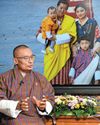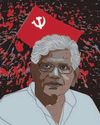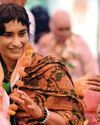Families of terror suspects and accused battle stigma, stress and scrutiny as they wait for their loved ones’ return.

It is early evening in Bhatkal, a quiet coast-al town in Karnataka. But the placidity is superficial; the ripples run deep here. Bhatkal rings a familiar note for those who have followed the birth of homegrown terror in India. It is home to Riyaz Bhatkal, Iqbal Shahbandri and Yasin Bhatkal, cofounders of the Indian Mujahideen, which has allegedly carried out a series of terror attacks in the country in the last decade. On December 19, Bhatkal was in news again after a special court of the National Investigation Agency (NIA) pronounced death sentence on Yasin Bhatkal alias Mohammed Ahmed Siddibapa and four others for carrying out twin explosions in Hyderabad’s Dilsukhnagar area on February 21, 2013. Eighteen people were killed and 131 people injured in the attack.
Yasin was a key link in the transition of the Pakistan-sponsored homegrown terror outfit IM to the global Islamic State. Arrested in 2013, Yasin told interrogators that some of the IM members—who had fled with him to Pakistan in 2008 after the Batla house encounter—had contacted Al Qaeda-Taliban leadership directly as they were unhappy with the control being exerted by Pakistan’s Inter-Services Intelligence. A few of them then formed Ansal ul Tawhid (AuT) to fight alongside the Taliban against the NATO forces. But as the IS brand grew bigger, they shifted base to Syria. This gave birth to the IS-India chapter, headed by Sultan and ShafiArmar, brothers from Bhatkal, who left for Syria in 2014.
Bu hikaye THE WEEK dergisinin January 01, 2017 sayısından alınmıştır.
Start your 7-day Magzter GOLD free trial to access thousands of curated premium stories, and 9,000+ magazines and newspapers.
Already a subscriber ? Giriş Yap
Bu hikaye THE WEEK dergisinin January 01, 2017 sayısından alınmıştır.
Start your 7-day Magzter GOLD free trial to access thousands of curated premium stories, and 9,000+ magazines and newspapers.
Already a subscriber? Giriş Yap

Themes Of Choice
As Savvy Investors Seek New Avenues, Thematic Mutual Funds Are Gaining Popularity

A golden girl
One of India's most formidable beauties passed away earlier this month. The odd thing is she would absolutely hate this obituary; she hated being written about and avoided publicity for all of her nine decades. Indira Aswani was 93 when she died. But anyone who encountered her, even briefly, was in such awe of her grace and poise, and one could not but remember her forever.

The interest in wine is growing delightfully in India
The renowned British wine writer and television presenter Jancis Robinson, 74, recently came to Delhi and Mumbai to reacquaint herself with India's wine industry. This was the Robinson's fourth visit to India; the last one was seven years ago. On this trip, Robinson and her husband, restaurateur Nicholas Lander, were hosted by the Taj Hotels and Sonal Holland, India's only Master of Wine.

United in the states
Indian-Americans coming together under the Democratic umbrella could get Harris over the line in key battlegrounds

COVER DRIVE
Usage-driven motor insurance policies offer several benefits

GDP as the only measure of progress is illogical
Dasho Karma Ura, one of the world's leading happiness experts, has guided Bhutan's unique gross national happiness (GNH) project. He uses empirical data to show that money cannot buy happiness in all circumstances, rather it is family and health that have the strongest positive effect on happiness. Excerpts from an interview:

India is not a controlling big brother
Prime Minister Tshering Tobgay considers India a benevolent elder sibling as the \"big brotherly attitude\" is happily missing from bilateral ties. He thinks the relationship shared by the two countries has become a model of friendship not just for the region, but for the entire world. \"India's attitude is definitely not of a big brother who is controlling and does not allow the little brother to blossom and grow,\" says Tobgay in an exclusive interview with THE WEEK.

Comrade with no foes
Lal Salaam, Comrade Yechury-you were quite a guy!

Pinning down saffron
In her first political bout, Vinesh Phogat rides on the anti-BJP sentiment across Haryana

MAKE IN MANIPUR
Home-made rockets and weapons from across the border are escalating the conflict